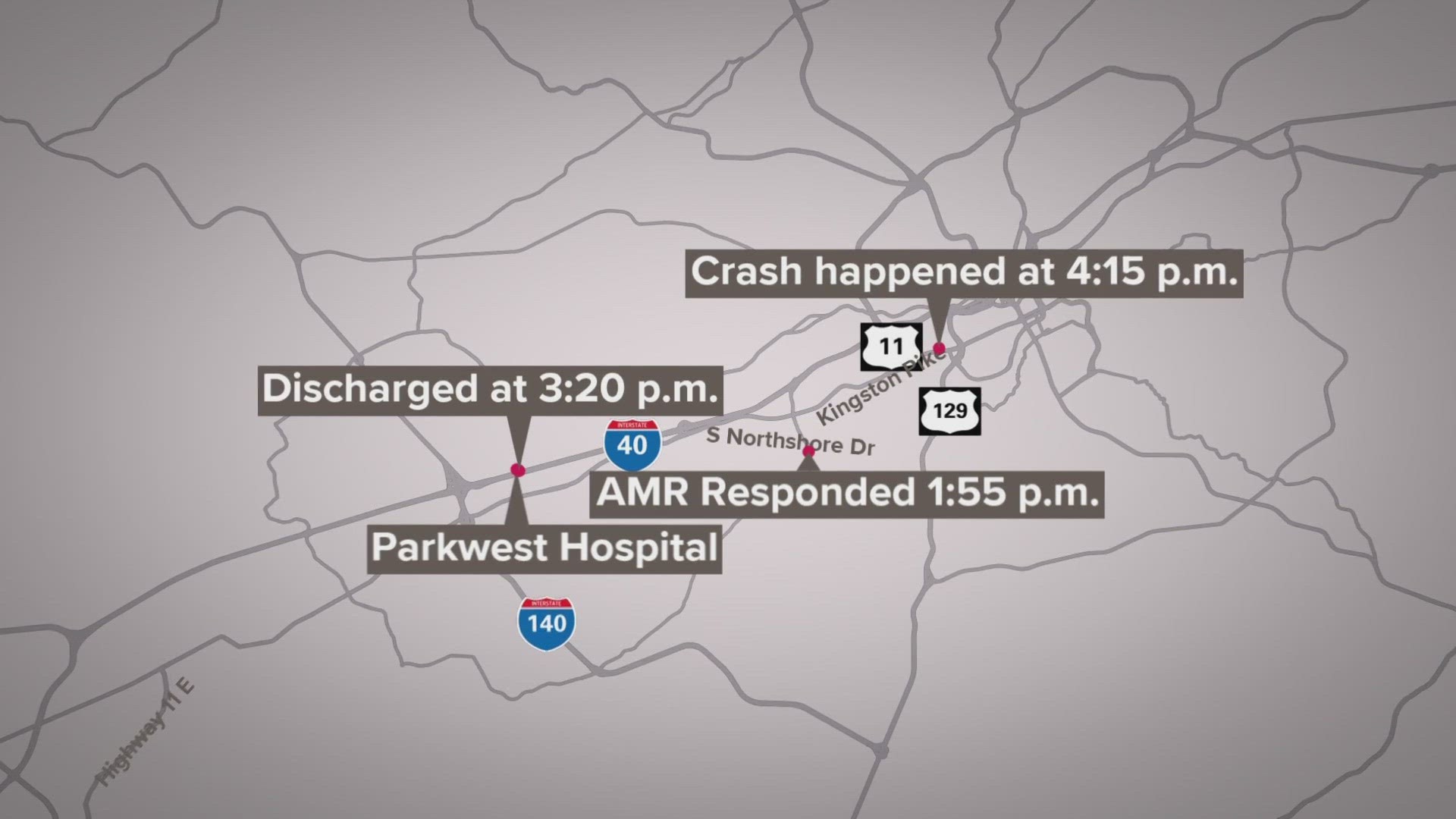KNOXVILLE, Tenn. — Ben Kredich was walking on Kingston Pike to meet his father for their regular dinner when a driver struck and killed him. It took roughly two-and-a-half hours between the time authorities say the driver first overdosed and the crash.
"It's mind-boggling to me that this man had essentially overdosed just hours before he killed Ben," said Matt Kredich, Ben's father. "And that minutes before he killed Ben, he had regained the ability to overdose again, or to impair himself again and he had access to the car."
Shannon Walker was charged with vehicular homicide and DUI after the crash. After he was first picked up by authorities following an overdose and released from the hospital, he was able to retrieve his minivan.
Ben's parents had their son's celebration of life on Sunday, where hundreds of people from the community attended. Ben and his mother, Kim Kredich, work together on solutions to problems Ben faced throughout his life, and she said that 's what she wants to do now.
"If there's something we can do about it, if there's a process that can be improved, that can be fixed, that would prevent a tragedy like this from ever happening again," she said. "That's what we want to focus our sadness and our vision on — to do in Ben's name."
At around 2 p.m. on Aug. 21 Walker was treated for a suspected drug overdose by AMR. They took him to Parkwest Medical Center and was discharged when Walker refused treatment. By then, it was about 3:30 p.m.
About 45 minutes later, according to police, he struck and killed Ben while driving his minivan. Devon M. Jacob, a personal injury and civil rights attorney for the Lisa Edwards case here in Knoxville, said it shouldn't have happened.
"It's incredibly tragic what happened here," Jacob said. "But it's also very apparent from just the affidavit attached to the warrant that there were steps along the way where this could have been prevented."
He says the fact that Walker was found in a driveway, unresponsive, should've raised a red flag.
"This shows an individual who has poor judgment, who is willing to operate a vehicle," Jacob said.
WBIR reached out to several organizations involved in this case. A statement from AMR is available below.
"When we get to the scene and there’s somebody badly hurt, or an overdose, all our crew of two is trying to do is save a life. They’re not looking around for signs of a crime or anything else...They are just trying to save the person and get them to the hospital. That's what we do."
Parkwest Medical Center also released a statement, available below.
"Parkwest Medical Center joins our community in remembering and honoring the life of Mr. Ben Kredich. Although patient privacy laws restrict Parkwest from disclosing information about an individual’s health care, Parkwest can confirm the person involved in last week’s traffic accident left hospital premises as a passenger in a vehicle, not as a driver. The hospital is cooperating fully with the Knoxville Police Department’s ongoing investigation."
The Knoxville Police Department's statement is also available below.
"First and foremost, the situation that resulted in Ben Kredich’s death is heartbreaking and tragic. We, like the community, are deeply saddened by his death and the circumstances surrounding it.
The hospital does not generally notify the police when a patient is transported there for treatment after being administered Narcan for a suspected drug overdose, nor are they legally required to do so. To my knowledge, KPD was not notified in the case of Shannon Walker.
The KPD was not dispatched to or involved in any capacity with the initial call on Westland, where Walker was reportedly found unresponsive, administered Narcan and transported to the hospital. That was dispatched and treated as a medical call only. Officers only became aware of that situation in the course of their investigation into the fatal crash.
The general protocol is that suspected drug overdoses are handled primarily as medical calls and only secondarily as law enforcement matters.
One reason for that is TCA 63-1-156, which was put into law to prevent somebody from not calling 9-1-1 for medical assistance for a drug overdose because they are fearful of getting arrested. That law states in part, "Any person who is experiencing a drug overdose and who in good faith seeks medical assistance for or is the subject of a request for medical assistance shall not be arrested, charged, or prosecuted for a drug violation if the evidence for the arrest, charge, or prosecution of the drug violation resulted from seeking such medical assistance.
TCA 63-1-156 is widely supported by drug-abuse treatment service providers."
Ben's parents are now taking one step at a time. They said they want to honor their son by trying to make sidewalks and roads safer for pedestrians.
"My sense is that this was predictable," said Matt. "That the sequence of events that this man went through was predictable, based on what we know about addiction. On one hand, we are thankful that more people didn't die, and our big goal is to do something to take what seems to be a fairly predictable sequence of events and find a way to interrupt future events like this so that nobody, nobody gets hurt. And nobody loses their life."
Their focus is on the bigger picture.
"Find the support, find the solution," said Kim. "So this doesn't happen again."

